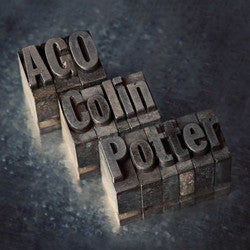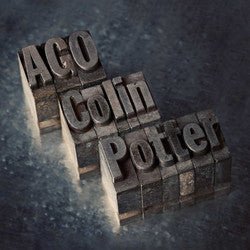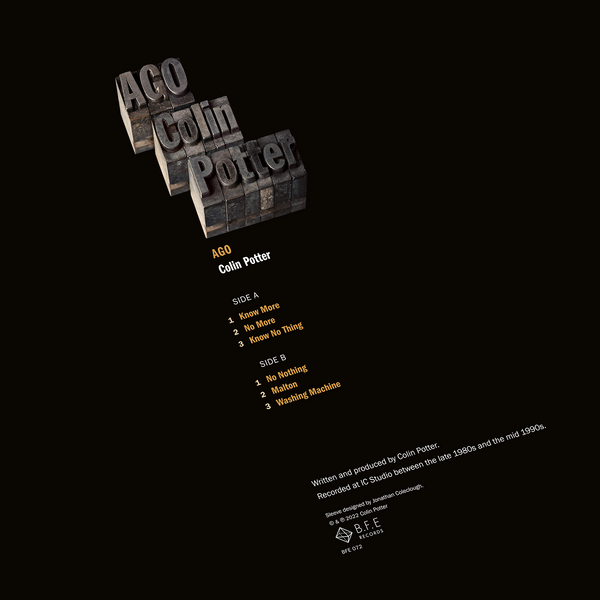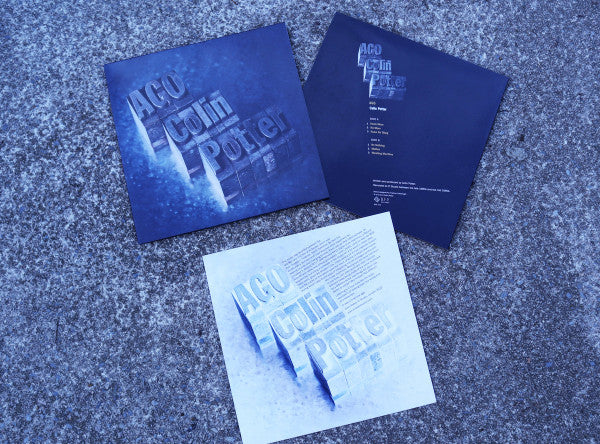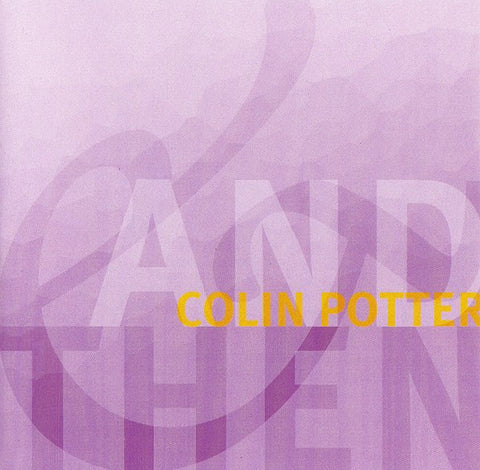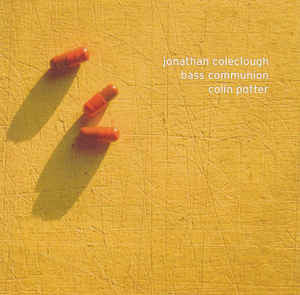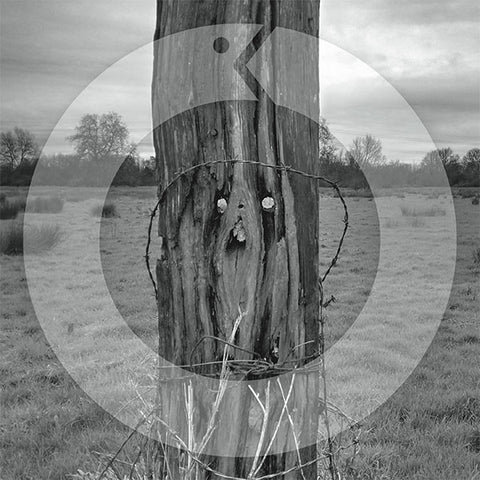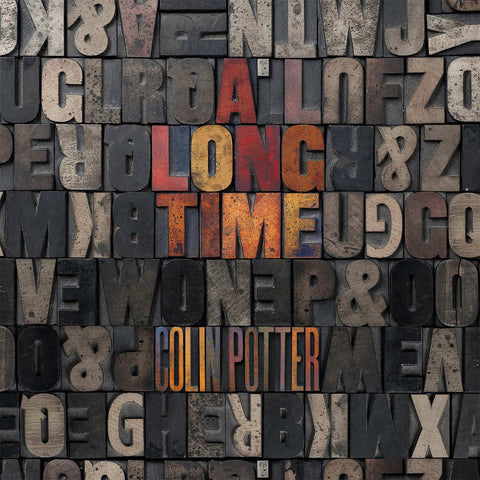Colin Potter 'Ago'
08.11.22
This is the first vinyl release of the last of the music recorded in the late 80s to the mid 90s. A record of of heavily rythmic tracks, housed in a handsome Jonathan Coleclough designed sleeve, with insert, Thanks to B.F.E./Abstrakce Records in Valencia.
All copies from ICR will be signed.
***PLEASE ASK IF YOU WOULD LIKE A FREE DOWNLOAD CODE FOR THIS***
An original and particular approach to rhythmic electronics, with an incredible sound, like in all of Potter's works. Six hypnotic tracks from Colin's archive of rarities, for the first time on vinyl, perfect to play really loud.
These six pieces were recorded between the late 80s & mid-90s at IC Studio, which was then located in Tollerton, North Yorkshire.
“I wanted to make some tracks which were much more rhythmic. By then the studio was a 16-track and I had acquired more equipment for making sounds and changing sounds. There was an Akai S950 sampler, an Emulator II, Roland TR727 and Yamaha RX11 digital drum machines, a Roland Juno 60, and some new effects processors. I even, briefly, used an Atari for MIDI sequencing, but using a computer in the studio felt a bit weird in those days. Ironic really, given the situation now. There were a lot of new methods to learn and the tracks on this album were the result of some of these experiments, during which I also found ways of integrating the old analog synths with the newer machines. Mixing was still done hands-on, in real-time, with alternative and often radically different takes being made of the same multitrack. Very different to the way things are done now. Better or worse? Who knows? But different.”
- Colin Potter, IC Studio, London 2022.
It Was....A Long Time....Ago
REVIEW FROM JUNO RECORDS : Colin Potter has a unique approach to electronic rhythm that is fully laid bare on this Ago long player. His signature sound design defines the six cuts which were recorded in the mid-80s and late-90s at IC studio in Tollerton in North Yorkshire. Various bits of classic hardware were used in the making of these tunes - an Akai S950 sampler, an Emulator II, Roland TR727 and Yamaha RX11 digital drum machines, a Roland Juno 60, and more, and the results are mind-melting cuts that fuse bleep, electro, EBM, techno and acid.
REVIEW FROM BOOMKAT :
Recorded between the late ‘80s and early ‘90s, and very much redolent of contemporaneous industrial dance/new beat/EBM/proto-techno, ‘Ago’ hails the mad boffin at the knobs on six propulsive pieces of hardware-hewn 4-to-the-floor rhythm and hypnotic, layered electronics bound to do the damage in spangled nightclubs and the endless afters. It also notably features some of the earliest instances of Potter using an Atari computer for MIDI sequencing, which he acknowledges as feeling “a bit weird in those days”, and “Ironic really, given the situation now”, but likewise signifies how his music has both reflected and mutated modes of progressive electronic music since Potter’s earliest joints circa 1981 issued on his legendary ICR label.
Working at his studio in Tollerton - a tiny village in North Yorkshire, detached from the usual power centres of electronic music and the kind of dance trax explored here - ‘Ago’ depicts Potter at his most purposefully rhythmic. He’s clearly drawing on the whole dance phenomenon of the era, but with the custom style of detuned and unique electronic timbres that have always defined his work. It all marks a hitherto unforeseen aspect of his oeuvre, with a singular quality attributable to his earliest experiments with integrating old analog synths with new machines, and each cut thus fizzes with a mesmerising, direct energy and combustible thrill of the new that makes it all sound uncannily fresh some 30 years later.
Made in relative isolation from any notable dance scene at the time, the trax weren’t made for any specific club or soundsystem crew, as was much dance music of the time, but rather follow his nose for a mutant take on rhythmic electronics that better reflect the thrust of fellow northern outliers such as TG’s Chris & Cosey or parallels across the North Sea in Rene Bakkers’ Tuning Circuits and lowlands kin Psychick Warriors of Gaia or The Dad’s in cuts such as the gnashing bucker ‘No More’ or ‘Know No Thing’, as much as Larry Heard’s Chicago templates in ‘Know More’ and the 12 minute wonder ‘Washing Machine’, with an eerie sore thumb of eldritch waltz in ‘Malton’ that echoes his earliest gems.
REVIEW BY FRANS DE WAARD IN VITAL WEEKLY : Label boss Colin Potter's career spans four decades now, and he's been active with electronic music most of that time, solo, but also as a fixed member of Nurse With Wound. There were already several re-issues from his early days, which were initially on cassette. 'Ago' has six pieces from the late-80s and mid-90s. The rhythm was never far away in the early music of Potter (unlike these days, it seems, when it is all more about tones and drones), and in these pieces, Potter uses a more sophisticated set of instruments. Mentioned are "Akai S950 sampler, an Emulator II, Roland TR727 and Yamaha RX11 digital drum machines, a Roland Juno 60, and some new effects processors". I am not a gear freak, so I am not all too impressed, but I would think that Potter's music over the years, coming from his earlier days, certainly matured. It seems to connect to the world of techno music, even when none of these pieces is too much geared for the dance floor. The thump of the beat is surely a strong presence in all of these pieces, along with the gnawing of the bass synthesizer. It seems to miss that grooviness that 'real' (what is that) dance music, and Potter's music was the connection between good ol' industrial music when it went 'dance' and techno music. As a sucker for all things electronic and rhythm, and indeed the music of Colin Potter, I enjoyed the music on this record. It provided a missing link for me, music from a time in which Potter was a bit lost. He was actively involved with his studio and not so much in releasing music, but this record shows that he evolved as a composer. Is there more from this period, and if so, can we hear that too?

